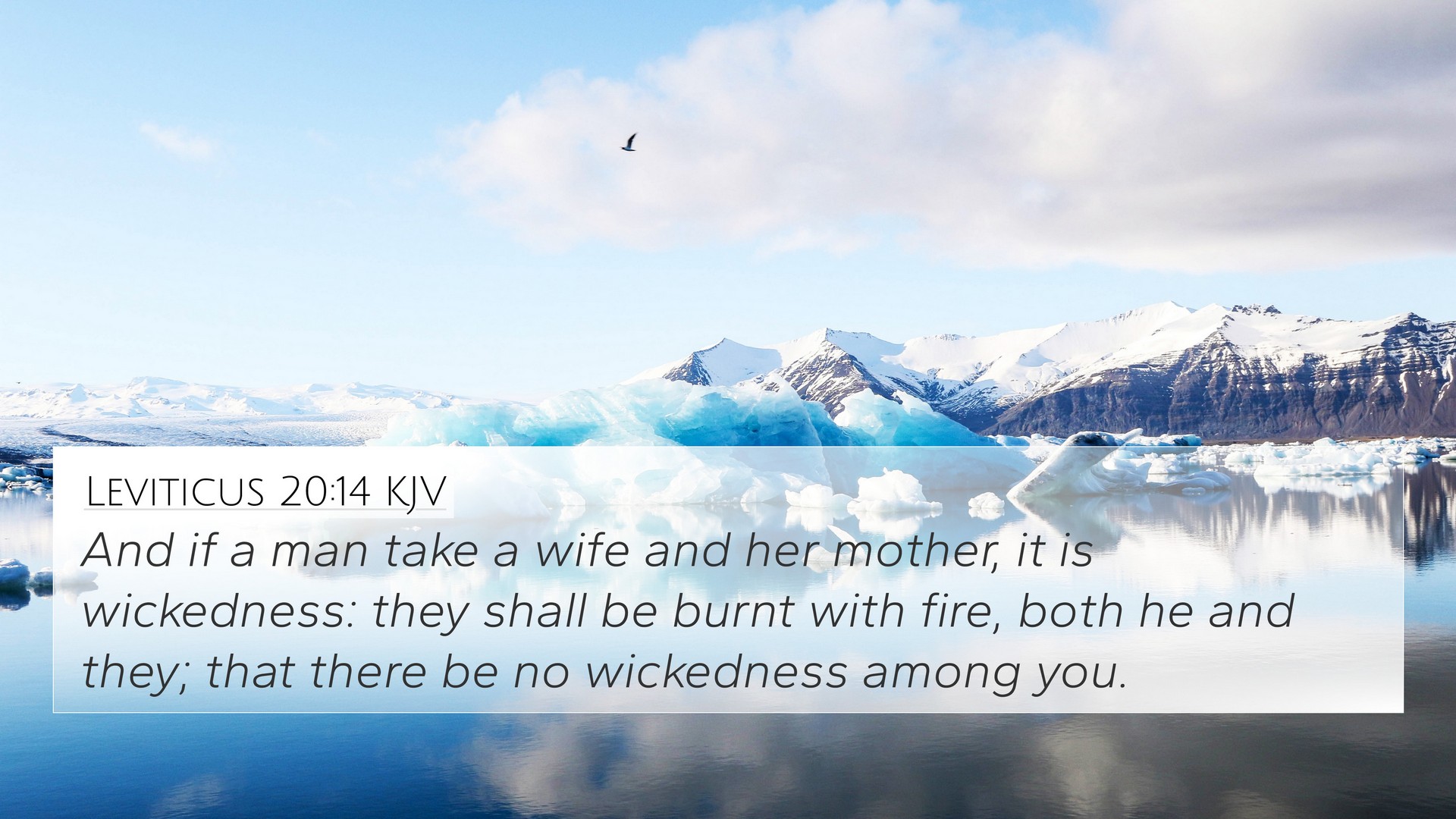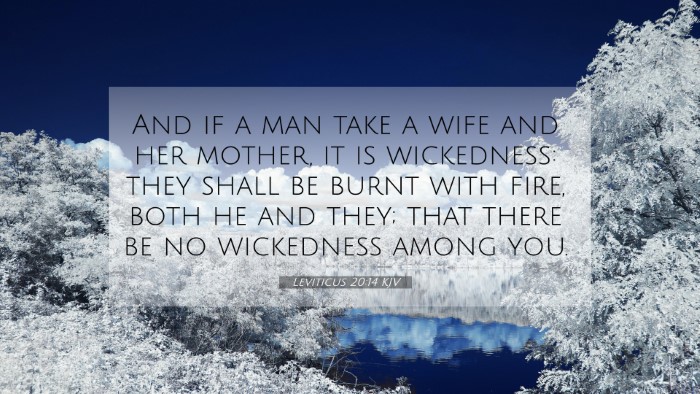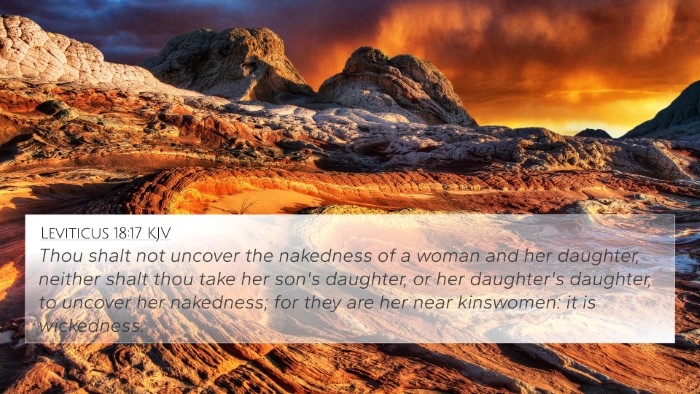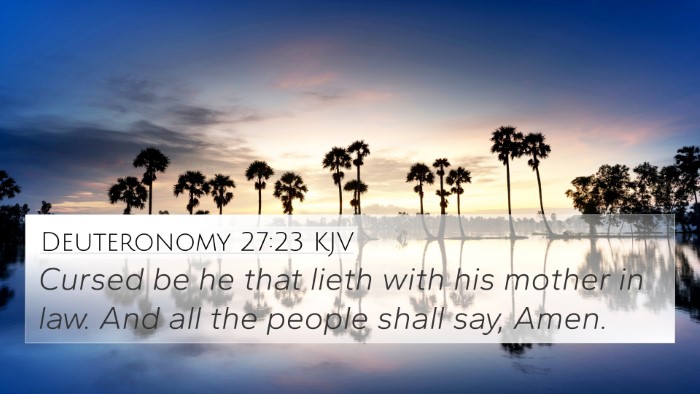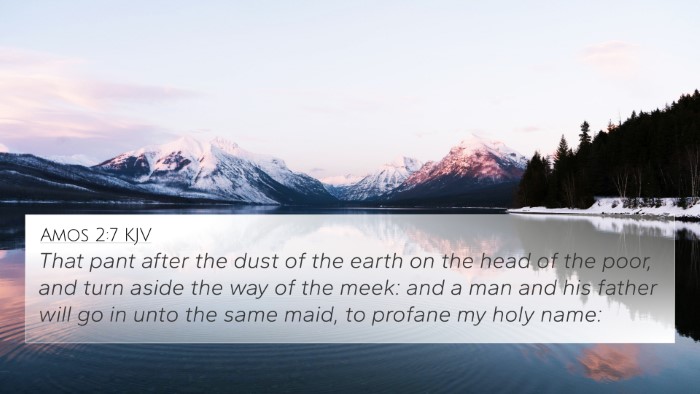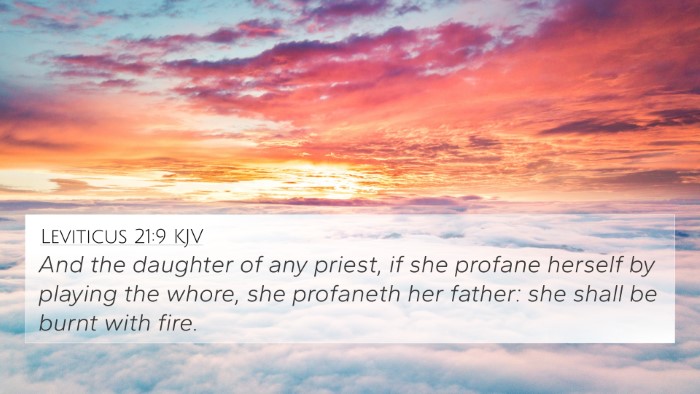Leviticus 20:14 states:
"If a man takes a wife and her mother, it is wickedness; they shall be burned with fire, both he and they; that there may be no wickedness among you."
The verse speaks to the severity of certain sexual sins within the community of Israel. It sets a clear boundary regarding sexual relationships and the consequences of violating God's laws. This law was intended not only to maintain moral purity but also to establish a covenant community that reflected God's holiness.
Summary of Biblical Interpretations
The diverse insights from several public domain commentaries, including those of Matthew Henry, Albert Barnes, and Adam Clarke, provide a rich understanding of this verse.
Matthew Henry's Commentary
Matthew Henry emphasizes the seriousness of the law, marking it as a protective measure for the nation of Israel. He identifies the act as an egregious offense deserving of severe punishment, highlighting the idea of communal holiness. Henry notes that these laws serve as a reminder of how deeply sin can corrupt human relationships and should prompt the faithful to avoid such wickedness.
Albert Barnes' Notes
Albert Barnes interprets the verse in the context of purity in familial relationships. He points out that the law reflects the sanctity of marriage and family ties, which can be easily corrupted. Barnes suggests that the harsh penalty reflects God's desire to protect His people from the degradation resulting from such behaviors, and that it underscores God’s absolute moral standards.
Adam Clarke's Commentary
Adam Clarke delves into the cultural implications of the law, explaining that taking a wife along with her mother represented blatant disregard for the structure and sanctity of the household. He notes that this violation would cause immense disgrace and conflicts. Clarke also remarks on the penalty of burning, which signifies the complete eradication of such acts from society.
Bible Cross-References
This verse relates closely to various other Biblical texts. Here are some significant cross-references that further illuminate the themes found in Leviticus 20:14:
- Leviticus 18:17 - Prohibits similar sexual relationships and emphasizes the sanctity of family.
- Deuteronomy 22:22 - Offers insights on adultery and its consequences.
- 1 Corinthians 5:1 - Paul speaks of immorality that is not even named among Gentiles, reflecting a similar outrage.
- Hebrews 13:4 - Affirms the honor of marriage and the seriousness of sexual immorality.
- Romans 1:26-27 - Addresses unnatural relations and illustrates God’s wrath against such sins.
- Exodus 22:19 - States penalties for various immoral acts, linking to the theme of covenant adherence.
- 1 Thessalonians 4:3-5 - Encourages believers to abstain from sexual immorality, reflecting the moral standards upheld in Leviticus.
Thematic Connections
Thematic Bible verse connections reveal a holistic understanding of righteousness and moral living as commanded in religious texts. The implications of Leviticus 20:14 extend beyond the immediate context and resonate through various teachings in other books of the Bible.
Connections Between Bible Verses
The connections between the Old and New Testament regarding sexual ethics are crucial. As noted in Romans and 1 Corinthians, New Testament writers reiterated the call to purity, grounding their arguments in the moral truths established in the Law.
Inter-Biblical Dialogue
This verse initiates an inter-Biblical dialogue surrounding sexual ethics, covenant fidelity, and community purity. Contemporary discussions surrounding biblical morality draw heavily on these established themes found within the Scriptures.
Tools for Bible Cross-Referencing
For anyone looking to conduct a thorough study of such verses, utilizing tools for Bible cross-referencing is invaluable. Resources such as a Bible concordance or cross-reference guide can significantly enhance understanding.
How to Use Bible Cross-References
Understanding how to use Bible cross-references can enrich one's study. It allows for a comparative Bible verse analysis that highlights parallels and thematic relations across different books of the Bible.
Conclusion
Leviticus 20:14 serves as a powerful admonition regarding sexual ethics and the upholding of community standards. By studying this verse alongside cross-referenced scripture, readers can appreciate the fullness of biblical teaching on morality, relationship sanctity, and communal holiness. The insights from various commentaries provide depth and context, supporting believers in living a life aligned with God's righteousness.
